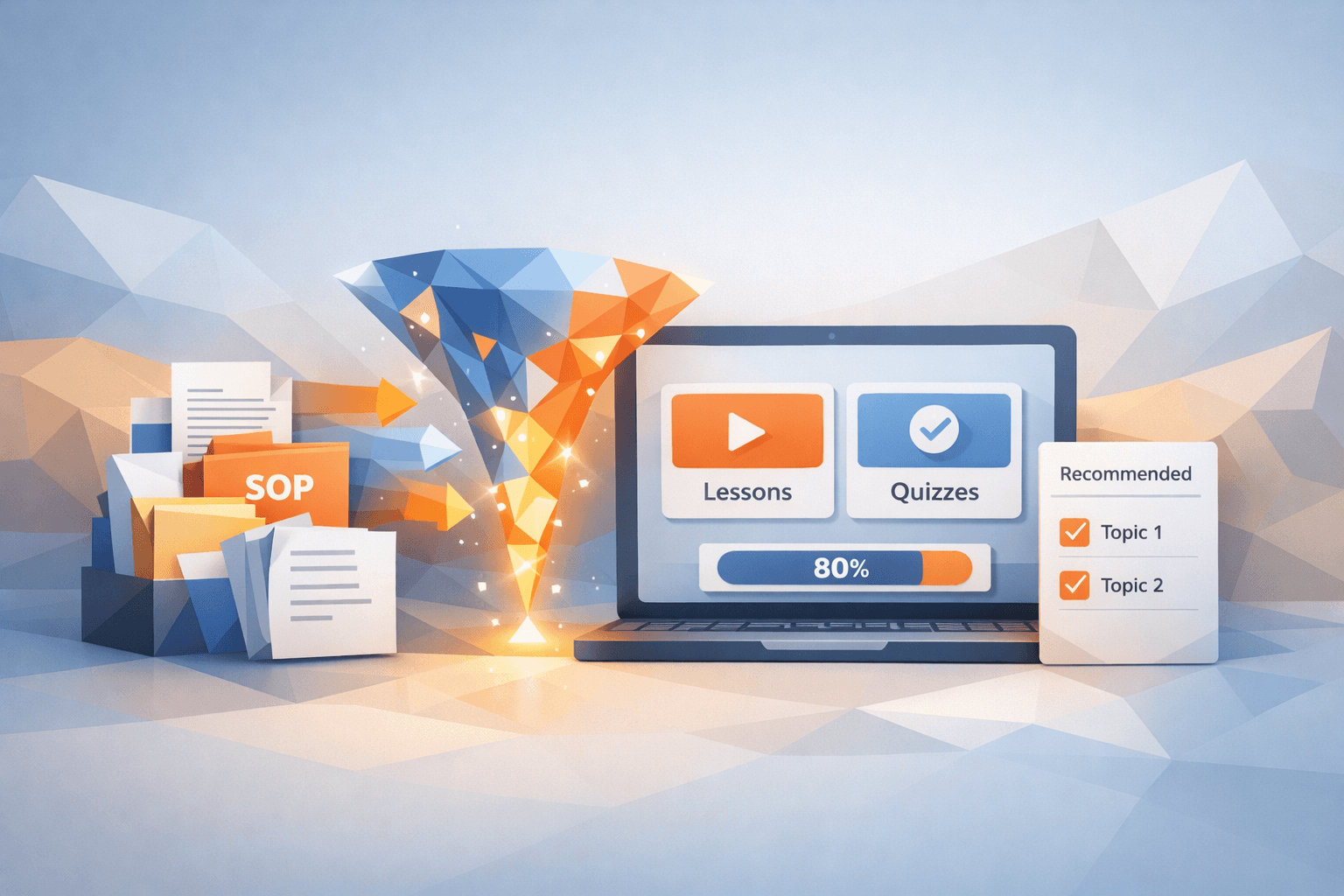2 min
Jul 3, 2025
Discover how "LMS-light" offers a streamlined alternative to traditional Learning Management Systems, ideal for small teams and organizations seeking efficiency without the overhead.
Zack Allen

Exploring a nimble alternative to heavyweight LMS platforms for resource‑constrained teams
Why the "LMS‑Light" Conversation Matters
Learning Management Systems (LMSs) earned their place in corporate learning by solving two big problems: getting training to the right people and proving they completed it. But the same systems that keep a global workforce certified can feel like overkill for a 30‑person start‑up or a regional nonprofit rolling out a single policy refresher.1
That gap—between "no structure" and "enterprise LMS"—is where LMS‑light enters: using a modern authoring tool, plus a few smart add‑ons, to create, deliver, and track learning without the overhead of a full LMS.
What Makes an Authoring Tool "LMS‑Light"?
Most authoring tools focus on building courses. A subset now layers on three LMS‑style capabilities:2
One‑click publishing – Generate a shareable link or embed code so learners launch directly.
Basic access control – Gate the course with Single Sign‑On (SSO), email‑domain checks, or a quick name‑and‑email form.
Built‑in analytics – Record completions, quiz scores, and dwell time, then surface insights via dashboards.
With those pieces in place, a lightweight stack covers the essentials—author, distribute, measure—while staying far simpler than a traditional LMS.
When LMS‑Light Fits
Scenario | Why "Light" Wins |
Small learner pools | Manually adding 50 learners is fine; a full user‑management engine isn’t. |
Rapid roll‑outs | Policy updates, product launches, or client onboarding that can’t wait for an IT project. |
Lean budgets | Authoring‑tool subscriptions and cloud hosting beat five‑figure LMS contracts.3 |
Creator‑led teams | Instructional designers control the whole lifecycle inside one interface. |
When a Full LMS Becomes Necessary
Regulated industries needing auditable, long‑term records across thousands of employees
Complex curricula with learning paths, certifications, and blended ILT/online schedules
Deep integrations into HR, CRM, or performance systems for automated enrollment and analytics
If your learning strategy checks those boxes, an LMS‑light setup may become a stepping‑stone rather than an end state—and that’s okay.
A Hybrid Reality
Many organizations blend both worlds: they start lightweight to prove value quickly, then plug their authoring‑tool content into an LMS once scale or compliance demands it. Standards like SCORM and xAPI make that hand‑off straightforward.4
Tools such as Mindsmith and other cloud authoring platforms illustrate this hybrid approach. They let small teams publish a tracked lesson in minutes, yet export that same lesson cleanly into enterprise LMSs when the time comes. In practice, the jump from light to full often looks less like a rebuild and more like a simple file upload.
Key Takeaways
LMS‑light isn’t anti‑LMS; it’s about right‑sizing your tech stack for today’s needs.
Modern authoring tools can cover creation, delivery, and basic tracking—freeing small teams from big‑system inertia.
Standards compliance ensures you can grow into a full LMS without losing content or data.
Whether you’re piloting your first e‑learning module or supporting a distributed team on a shoestring, an LMS‑light approach can deliver meaningful learning impact now—and keep doors open for the future.
References
1. What Is an LMS? – Easygenerator Blog (2025)
2. LMS vs Authoring Tool—What’s the Difference? – Learning Industry Insights (2025)
3. LMS Cost & Pricing Guide 2025 – SoftwareFinder
4. Sharing eLearning via SCORM and xAPI – eLearning Standards Overview (2024)
Keywords: LMS‑light, lightweight LMS, authoring tool analytics, SSO e‑learning, flexible learning tech stack



